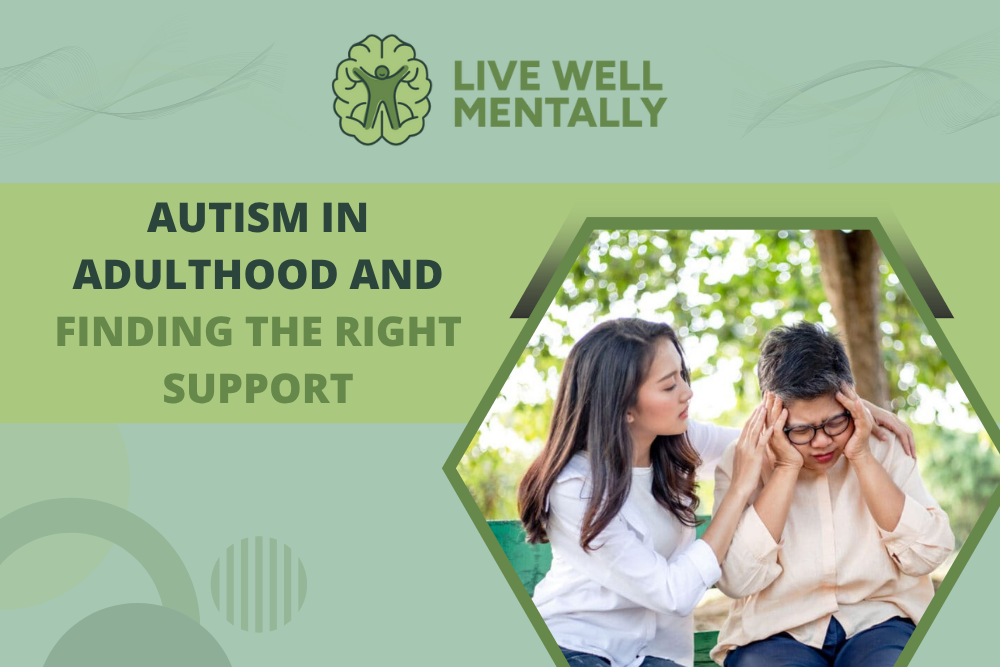Finding out you’re autistic as an adult can be confusing. Maybe you always knew something was different, or maybe this is all new information.
In any case, you will be left to wonder what then ought to happen.
More Adults Are Learning They’re Autistic
This isn’t unusual anymore. Plenty go decades without knowing that they’re on the spectrum. When they were kids, doctors weren’t looking for it unless the signs were really obvious.
Now we know better.
Autism may present itself in any manner, and there are numerous adults who have been dealing with it their entire lives without even having the slightest idea of what they were dealing with.
Particularly in women and individuals who were conditioned to conceal their attributes at an early age.
What It Can Look Like in Daily Life
Adult autism does not always correspond to what people would expect. One might notice such things as:
- Feeling wiped out after being around people
- Needing things done a certain way to feel okay
- Certain noises or lights that irritate you more than they should
- Failing to pick up on social cues that seem so clear to everyone else
- Having a few specific interests you care deeply about
- Preferring when people just say what they mean
Some days are easier than others. You might do fine at work but struggle when plans change suddenly. Or you could be great one-on-one but find groups really hard.
Why Getting Support Helps
Spending years not understanding yourself gets heavy. You might’ve thought you were just bad at things other people found easy. That’s not fair to yourself.
The right kind of help makes a difference because someone finally gets what you’re dealing with. They can help with:
- Anxiety or sadness that builds up over time
- Ways to handle situations that stress you out
- Making sense of sensory stuff without feeling dramatic
- Recognizing what you’re actually good at
Who Can Help in Connecticut
Theresa Antwi leads Live Well Mentally and knows how to work with autistic adults. She’s a psychiatric mental health nurse practitioner who treats people of all ages, starting from seven years old.
What’s helpful about her approach is that she doesn’t treat everyone the same. She hears what is really going on in your life and decides what would be of most help.
Related: A Warm Welcome to Live Well Mentally
What to Expect from Good Care
Not all working in mental health are well-versed with autism, especially in adults. Some still have old ideas about it. When you’re looking for someone, think about whether they:
- See autism as just a different way your brain works
- Get that hiding your traits all day is exhausting
- Take you seriously even when you look normal
- Can treat other mental health stuff at the same time
- Let you communicate however works for you
- Make scheduling easy
Live Well Mentally does everything through telemedicine across Connecticut.
Starting Is the Hard Part
Asking for help probably feels weird if you’ve always handled things yourself. You’ve gotten this far without support, so why start now?
Because “getting by” and “doing well” are two different things. Let us support you:
- Understand why some things are harder for you than other people
- Stop thinking it’s your fault
- Find what actually works instead of forcing yourself to fit in
- Deal with depression or anxiety that’s been building up
- Feel less exhausted from pretending all the time
Get Support
Some people worry that they should have done this years ago.
Don’t think like that. Whether you have just been diagnosed or are still working out the situation, getting help matters at this point.
Theresa works with adults all over Connecticut in your exact situation.
She will not hurry, judge you and is only there to assist you in working things out at your own pace.
Whether you are willing to finally stop going it alone, call Live Well Mentally and see how having someone on your side would make it a little bit easier.
FAQs
Do I need a diagnosis first?
No. If you suspect you are autistic then that’s enough to start discussing it with someone.
Is online therapy actually helpful for this?
Yeah. A lot of autistic adults prefer it because you’re at home, where things feel comfortable.
What if nothing’s really wrong, though?
One does not need to be in crisis to receive support. When life becomes harder than it ought to be then that is enough reason.


